Collagen is the most prevalent protein in the human body and forms most of its muscles and connective tissue. In the skin, it is found in the dermis and is responsible for keeping our skin plump, firm and wrinkle free. We begin life with an abundance of collagen; that’s why baby skin is so supple and soft. As time goes by, our collagen deplete due to environmental stressors, UV damage and hormonal changes. Especially when we hit menopause, collagen takes an exponential downward dive of around 30 percent during the first five years after your final menstrual period, followed by 2 percent annually thereafter leading to dry, thin and wrinkly skin.
It’s scary, I know.
In this blog, I’m sharing with you a checklist of foods, supplements, skin ingredients and treatments that can help boost your skin’s collagen production.
Before I go through the list, it’s important to note, the earlier you start, the better. Skin collagen starts to deplete from 25 years old (sooner if you smoke, have a stressful lifestyle, been ill or go on a yo-yo diet). By starting sooner, the cells that produce collagen (fibroblast) are still abundant and can be “woken up” more effectively. As we age, our fibroblast slowly deplete in number but also effectiveness. So adopting a healthy lifestyle, (sleep well, stress less, drink lots of water), eating the right foods, taking the right supplements and being consistent with a good skin routine, this will all help maximise skin collagen production.
Hope you find this useful.
Top Collagen Boosting Foods
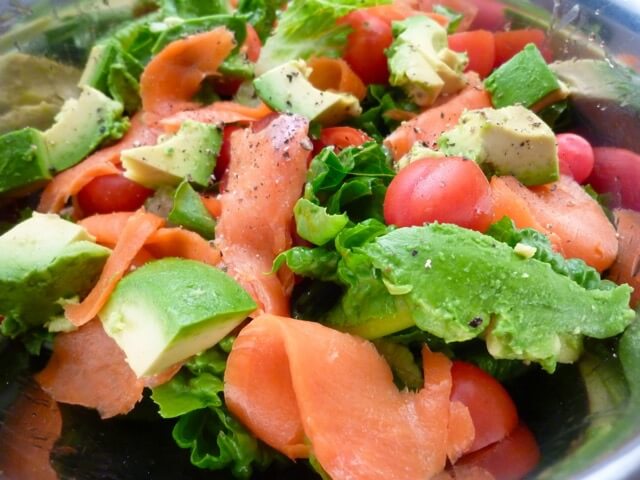
Make sure you stock these in your kitchen!
- Red bell peppers – high in Vitamin C which is important component of producing collagen.
- Sweet Potatoes – high in Vitamin A which signals the cells to produce more collagen.
- Tomatoes – high lycopene which prevents collagen breakdown from environmental assaults.
- Salmon – high in Omega 3 which reduces inflammation and prevent breakdown. Avocado and walnuts are also a good source.
- Lean turkey – Good source of clean protein and provides amino acids, the building
blocks of collagen. Choose tofu or soya bean if you’re vegetarian. - Eggs – rich in choline which converts to glycine, an important building block.
- Sunflower seeds – high in Vitamin E which is an antioxidant, preventing free radical
damage.
An easy way to incorporate this is making a salmon/turkey salad with sweet potatoes, tomatoes, red bell peppers and sprinkle with sunflower seeds. You can add a poach egg on top or make an omelette and cut them in thin slices adding to the salad.
Essential Collagen Boosting Supplements
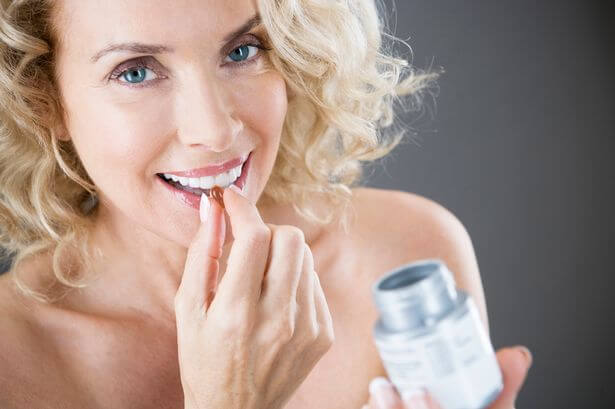
Supplements aim to support and plug any nutritional gaps in your diet. It’s important to stress that it goes along side healthy and nutritious eating, and not to replace it.
- Multi-vitamin and multimineral – the basics that EVERYONE should be on even if you eat well. Most people are depleted in micronutrients due to stressors of modern living.
- Omega 3 – another must as it reduces inflammation, aids repair and reduces the skin susceptibility to UV damage by 50% (all good news for collagen)
- Collagen supplement – Does collagen supplements actually work? It does if you’re taking the right concentration. I’ve written more about it below as it’s another common question I get asked.
In one study, women who took a supplement containing 2.5-5g of collagen for 8 weeks experienced less skin dryness and a significant increase in skin elasticity compared to those who did not take the supplement. Another study found that women who drank a beverage mixed with a collagen supplement daily for 12 weeks experienced increased skin hydration and a significant reduction in wrinkle depth compared to a control group.
How does it work? Collagen in itself is a large molecule to absorb so the collagen supplement or powder contains its smaller components (amino acids) which is easier to absorb. Apart from supplying the building blocks for collagen production, the flooding of these amino acids in the blood stream makes the body think there is an injury somewhere so it stimulates it’s own collagen production, maximising it’s effect.
So which to choose? They can come from hydrolysed grass-fed bovine, wild-caught fish, bone broth or even vegetables for vegetarians and vegans. Some even include vitamins, minerals and anti-oxidants which are great for the skin. For visible results, you want to aim for 15-20g collagen per day. If you do high intensity exercise, you will need 30g/ day to replenish cells and heal the body.
My favourite brand is Primal Goddess Collagen Supplement by Planet Paleo. It contains pasture-raised beef collagen, antioxidant-rich berries including Schisandra, Goji and acai, Omega 7 fatty acid rich sea buckthorn berries plus the traditional herbal favourites Burdock and Horsetail. It also contains the essential mineral Zinc which aids the production of the skin proteins collagen and keratin. Important antioxidants Vitamin C and Vitamin E, plus other beauty favourites such as biotin and skin-hydrating hyaluronic acid.
Important Collagen Boosting Skincare Ingredients
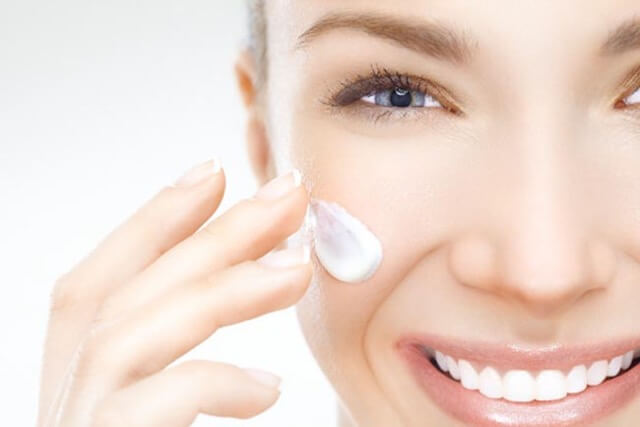
These 5 I feel are the most important.
- Peptides – these amino acids are basically smaller collagen proteins that can penetrate the skin and trick the skin thinking it has lost collagen stores and kick-start it’s own production.
- Growth Factors (GF) – these are naturally secreted by all cells and act as a natural messenger between different cells of the body. As we age, our GF drops so products that contain Epidermal GF helps to stimulate the regeneration and protein production of the skin.
- Retinol – this is a form of Vitamin A and is a cell communicator. It helps damaged skin cells return to their normal function and be effective at producing healthy collagen.
- Vitamin C – this is a powerful antioxidant which indirectly boost collagen by reducing breakdown and supports collagen synthesis.
- Sunscreen – not really an ingredient but wanted to make sure it makes the list as it’s paramount for any anti-ageing regime.
These are some of my favourite products with these ingredients. I’ve selected these based on the quality of their formulation, concentration of the ingredient and their effectiveness on their skin.
- Point Extra Firm by ph Formula (contains 3 types of peptides)
- Total Strength Serum by PCA Skin (combines peptides and growth factors)
- Intensive Age Refining Treatment 0.5% pure retinol by PCA Skin
- C+E Strength by PCA Skin (contains 15% Vitamin C and Vitamin E for extra hydration)
NB: If you would like to have a professionally personalised skincare routine for your skin type and skin goals, I’m currently offering complimentary virtual mini skin consults before I write out your personalised regimen. It’s perfect if you’re time-constraint and are unable to come into clinic to see me.
Effective Collagen Boosting Skin Treatments
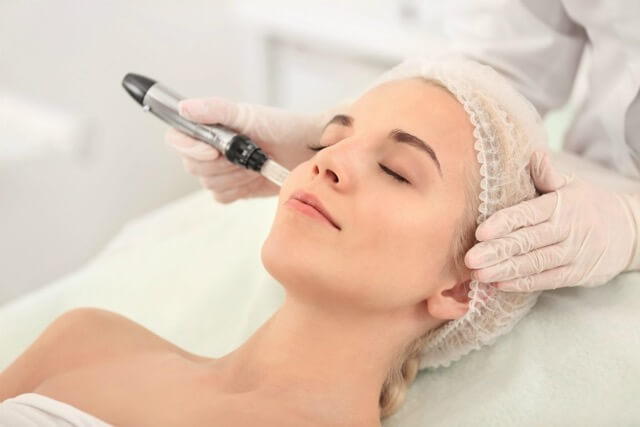
Just ticking off the checklist above will help immensely. However if you want a little extra help, these treatments are available:
- Radiofrequency – a popular and very effective treatment using RF energy to gently heat up the skin up to 39-40 degrees and cause a controlled thermal injury to the skin, triggering collagen production. Modern RF machines can be set to deliver the energy at different layers of the skin, ensuring comfort yet maximum results all over the face and body.
- Microneedling – this involves tiny needles making tiny holes in the skin, triggering a healing response and boosting collagen in the process. We can accompany the treatment with Hyaluronic Acid for extra hydration, Vitamin C for extra glow and DMAE for extra firming.
- Mesotherapy – this is a method of delivery of vitamins and minerals into the layers of the skin so it supports collagen production. It can be delivered manually with a tiny Meso-needle or with a Meso-gun (quicker and less painful).
- Medium depth/ Deep skin peels – an in-clinic peel which will penetrate to the layer of the skin where new collagen is produced and “waking it up”
Depending on where you start, you may need 3-6 sessions to start with and maintenance every 3-6 months.
If you are interested in any of the treatments above, you can email [email protected] to schedule a consultation with me to assess your suitability.
I hope you found this blog useful. If there are any questions, please do connect with me via IG or FB.
Until next time, have fun ticking off the checklist 🙂
Dr Terry
